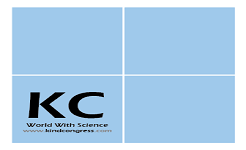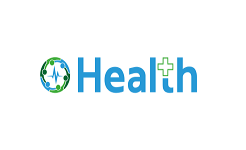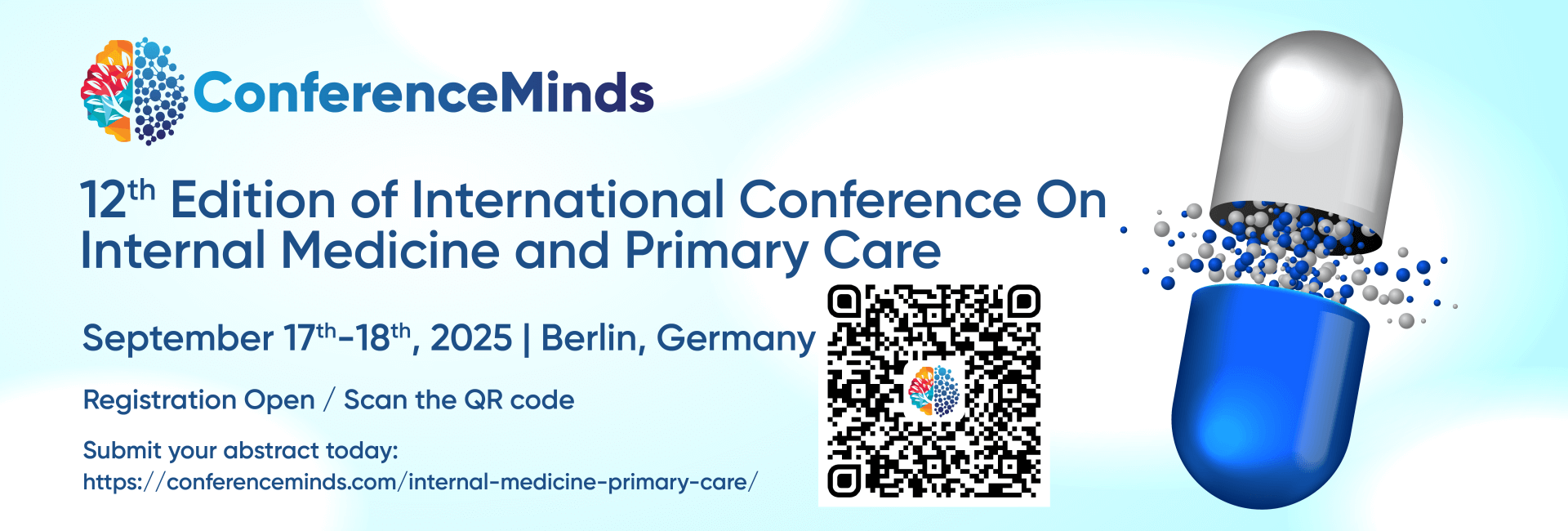Event Date
September 17-18, 2025
Venue
Berlin, Germany
– Previous Conference Performers / Professionals From Around The Globe –
Media Partners/Collaborator
A huge thanks to all our amazing partners. We couldn’t have a conference without you!










Sponsors/Exhibitors
A huge thanks to all our amazing partners. We couldn’t have a conference without you!


About Conference
The 12th Edition of the International Conference on Internal Medicine and Primary Care will take place on September 17-18, 2025, in Berlin, Germany. This highly anticipated event will bring together physicians, healthcare professionals, researchers, and thought leaders to explore the latest advancements, challenges, and best practices in internal medicine and primary care.
The conference will feature a comprehensive agenda, including keynote addresses, expert panels, and interactive sessions on a variety of critical topics such as chronic disease management, preventive care, patient-centered approaches, geriatric care, and integrated healthcare models. Additionally, emerging trends in telemedicine, digital health, and innovative treatments will be discussed, focusing on improving patient outcomes and enhancing the quality of care.
This event offers a unique opportunity to engage with global experts, expand knowledge, and collaborate on solutions to address the evolving landscape of primary care and internal medicine.
Conference Objectives:
-
Discuss Advancements in Internal Medicine:
Explore the latest research, treatment guidelines, and innovations in managing common and complex internal medicine conditions, including cardiovascular diseases, diabetes, and autoimmune disorders. -
Promote Primary Care Strategies:
Highlight the importance of preventive care, early diagnosis, and the role of primary care physicians in managing long-term health outcomes. -
Address Healthcare System Integration:
Focus on integrated care models, such as collaboration between primary care providers and specialists, to improve patient outcomes and healthcare efficiency. -
Explore Digital Health Innovations:
Discuss the use of telemedicine, electronic health records (EHR), and other digital tools to enhance care delivery and patient engagement in primary care settings.
Conference Benefits:
-
Cutting-Edge Insights: Gain access to the latest research and clinical advancements in internal medicine and primary care, improving your practice and patient care strategies.
-
Networking Opportunities: Connect with leading experts, fellow clinicians, and researchers from around the world to exchange knowledge, share experiences, and build lasting professional relationships.
-
Interactive Workshops: Participate in hands-on sessions and practical workshops designed to enhance your skills in patient management, chronic disease care, and the use of digital health tools.
-
Address Global Healthcare Challenges: Learn about innovative approaches to overcoming healthcare challenges, from resource optimization to improving access to care in underserved communities.
Who should attend
The 12th Edition of the International Conference on Internal Medicine and Primary Care will attract a diverse group of healthcare professionals and researchers who are involved in the diagnosis, treatment, and management of various health conditions. Key attendees will include:
-
Primary Care Physicians (PCPs):
General practitioners, family doctors, and internists who are at the forefront of patient care, disease prevention, and chronic disease management. -
Specialists in Internal Medicine:
Cardiologists, endocrinologists, pulmonologists, gastroenterologists, and other specialists who work alongside primary care providers to manage complex medical conditions. -
Nurses and Nurse Practitioners (NPs):
Healthcare professionals involved in patient care, particularly those focused on preventive medicine, chronic care management, and health education. -
Physician Assistants (PAs):
Healthcare providers who collaborate closely with doctors in primary care settings, focusing on diagnosis, treatment, and patient care management. -
Researchers and Academics:
Medical researchers, professors, and academics focusing on the latest advancements in internal medicine, primary care, healthcare policy, and innovative treatments. -
Healthcare Administrators:
Individuals involved in healthcare system management, aiming to understand care integration, resource optimization, and patient-centered care models. -
Pharmacists:
Professionals specializing in medication management and therapeutic approaches, particularly in managing chronic diseases and medication regimens in primary care. -
Public Health Professionals:
Individuals working in population health, preventive medicine, and health promotion, focusing on the broader strategies for improving health outcomes across communities. -
Healthcare Technology Providers:
Innovators and companies developing telemedicine platforms, digital health tools, EHR systems, and AI-powered solutions aimed at improving healthcare delivery. -
Students and Early Career Professionals:
Medical students, residents, and healthcare trainees interested in gaining insights into the future of internal medicine, primary care, and healthcare innovation.
Sessions and Tracks
1. Advances in Chronic Disease Management
This track will focus on the latest strategies and treatments for managing chronic conditions such as diabetes, hypertension, and heart disease, with an emphasis on improving patient outcomes through integrated care.
2. Preventive Medicine and Health Promotion
Explore the importance of preventive care, early screening, and health promotion strategies to reduce the burden of diseases and improve overall population health.
3. Telemedicine and Digital Health Innovations
A look at the role of telehealth, wearable devices, and digital platforms in enhancing patient care, improving access to healthcare, and streamlining clinical workflows.
4. Geriatric Care and Aging Populations
Address the complexities of geriatrics, including managing multiple comorbidities, medication management, and strategies for improving quality of life in aging populations.
5. Primary Care in Rural and Underserved Areas
Discuss the unique challenges and opportunities in providing primary care in rural or underserved communities, including access to resources, healthcare delivery models, and innovative solutions.
6. Managing Cardiovascular Diseases
Focusing on the latest developments in diagnosing and managing cardiovascular diseases, including heart failure, coronary artery disease, and arrhythmias, with a focus on prevention and personalized care.
7. Diabetes Management and Prevention
Explore the latest in diabetes care, from managing type 1 and type 2 diabetes to innovative prevention programs and new treatment therapies that improve glycemic control and reduce complications.
8. Infectious Disease Control in Primary Care
A deep dive into the management of infectious diseases, including vaccines, antibiotic stewardship, and approaches to tackling global health crises like COVID-19, HIV, and antimicrobial resistance.
9. Pain Management in Primary Care
Learn about non-pharmacological and pharmacological approaches to managing chronic pain, including opioid alternatives, cognitive therapies, and the role of interdisciplinary care teams.
10. Integrating Mental Health in Primary Care
Explore how mental health can be effectively integrated into primary care, with a focus on addressing depression, anxiety, and stress within the general practice setting.
11. Women’s Health and Preventive Care
This track will discuss preventive care strategies in women’s health, including breast cancer screening, reproductive health, and menopause management, with an emphasis on gender-specific approaches to care.
12. Pediatric Care and Preventive Health
Cover strategies for managing childhood illnesses, preventive care, vaccination schedules, and early intervention programs that support healthy development and long-term health.
13. Non-communicable Diseases and Lifestyle Medicine
Discuss how lifestyle interventions such as diet, exercise, and mental health impact the prevention and treatment of non-communicable diseases like obesity, diabetes, and hypertension.
14. Advances in Pharmacological Treatment in Primary Care
A session on the newest pharmaceutical treatments for chronic diseases, including the use of biologics, targeted therapies, and precision medicine to improve patient care.
15. Cardiometabolic Health and Obesity
Examine the intersection of cardiovascular health, metabolic syndrome, and obesity, discussing prevention strategies, weight management, and treatment interventions in primary care.
16. The Role of Artificial Intelligence in Primary Care
Explore how AI and machine learning are transforming diagnosis, treatment planning, and clinical decision-making, particularly in predictive analytics, diagnostic imaging, and patient management systems.
17. Integrated Care Models and Healthcare Systems
This session will focus on the integration of care models, such as patient-centered medical homes (PCMH) and accountable care organizations (ACO), that improve coordination and patient outcomes.
18. Dermatological Issues in Primary Care
Focus on the management of dermatological conditions commonly encountered in primary care settings, including skin cancer screening, acne treatment, and managing chronic skin disorders like eczema.
19. Managing Autoimmune Diseases
Discuss the challenges and innovative treatments for autoimmune diseases like lupus, rheumatoid arthritis, and multiple sclerosis in the primary care setting, including early detection and multidisciplinary approaches.
20. Future of Primary Care: Trends and Innovations
A forward-looking session discussing the evolution of primary care in response to changing patient needs, technological advancements, and healthcare policies, and how professionals can adapt to future trends.
Market Analysis
The global market for internal medicine and primary care is experiencing significant growth, driven by increasing demand for preventive care, rising rates of chronic diseases, and advancements in digital health technologies. With a growing focus on patient-centered care and the integration of telemedicine, the primary care sector is expanding to meet the needs of aging populations and individuals with multiple comorbidities. The market is also seeing increased investment in AI-driven diagnostic tools, healthcare analytics, and mobile health applications that enhance patient engagement and streamline clinical workflows. As healthcare systems worldwide shift toward value-based care models, primary care providers are becoming central to managing patient outcomes through early diagnosis, chronic disease management, and health promotion. The market is expected to grow steadily with an emphasis on preventative health and patient education, as well as the adoption of innovative treatment protocols and personalized medicine. However, challenges such as healthcare accessibility, staff shortages, and insurance complexities continue to pose barriers in some regions. Despite this, opportunities for growth remain strong in emerging markets, where expanding healthcare infrastructure and a rising focus on affordable care are driving new demand for primary care services.
About Venue
City: Berlin, Germany
Overview: Berlin is the vibrant capital of Germany, known for its rich history, diverse culture, and dynamic atmosphere. It’s a city that’s constantly evolving, blending a fascinating past with a modern, progressive vibe. From iconic landmarks to hidden gems, Berlin offers a unique mix of art, history, nightlife, and green spaces. The city’s energy is palpable, with its multicultural population and ever-changing creative scene.
History: Berlin has been a pivotal city throughout history, especially in the 20th century. It was the heart of Nazi Germany and the center of the Cold War, divided by the Berlin Wall from 1961 until its fall in 1989. The reunification of East and West Berlin marked a new chapter for the city, and today, it stands as a symbol of freedom and unity.
Top Tourist Attractions in Berlin:
- Brandenburg Gate (Berliner Tor)
- One of Berlin’s most famous landmarks, the Brandenburg Gate is a neoclassical monument symbolizing German unity and freedom. It was once a symbol of division during the Cold War when it stood on the border between East and West Berlin.
- The Berlin Wall Memorial (Berliner Mauer Gedenkstätte)
- This is a poignant site where visitors can see remnants of the Berlin Wall and learn about its impact. The East Side Gallery, a section of the Wall covered in murals, is another powerful reminder of Berlin’s divided past.
- Reichstag Building
- The Reichstag is the seat of the German parliament. Its impressive glass dome, designed by architect Norman Foster, offers a panoramic view of the city. Visitors can take guided tours to learn about the building’s political significance.
- Museum Island (Museumsinsel)
- Located in the heart of Berlin, Museum Island is home to five world-class museums, including the Pergamon Museum, which houses ancient artifacts like the Ishtar Gate and the Pergamon Altar. It’s a UNESCO World Heritage site and a must-see for art and history lovers.
- Alexanderplatz
- A bustling public square in the center of Berlin, Alexanderplatz is home to the famous Fernsehturm (TV Tower), which offers sweeping views of the city from its observation deck. It’s also a popular shopping and dining destination.
- The Holocaust Memorial (Memorial to the Murdered Jews of Europe)
- This somber, moving memorial consists of 2,711 concrete slabs of varying heights, dedicated to the Jewish victims of the Holocaust. It’s located near the Brandenburg Gate and serves as a reminder of Berlin’s dark past.
- Charlottenburg Palace
- A beautiful baroque palace located in the western part of Berlin, Charlottenburg is the largest palace in the city and is surrounded by stunning gardens. Visitors can explore its opulent rooms and learn about the history of the Prussian kings.
- Berlin Cathedral (Berliner Dom)
- Located on Museum Island, the Berlin Cathedral is an awe-inspiring piece of architecture. Its stunning baroque interior, magnificent dome, and impressive crypt make it one of the city’s most popular landmarks.
- East Side Gallery
- The East Side Gallery is an open-air gallery on the longest remaining stretch of the Berlin Wall. It’s covered with vibrant murals and graffiti, depicting messages of peace, freedom, and unity. It’s a colorful and emotional reminder of Berlin’s history.
- Tiergarten Park
- Located in the center of Berlin, Tiergarten is the city’s most famous park, perfect for a relaxing stroll, a bike ride, or a picnic. It also houses several monuments, including the Victory Column (Siegessäule).
- Pergamon Museum
- Part of Museum Island, the Pergamon Museum is renowned for its collection of ancient artifacts, including the magnificent Pergamon Altar, the Ishtar Gate from Babylon, and the Market Gate of Miletus.
- Kreuzberg
- Known for its alternative culture, vibrant street art, and trendy cafés, Kreuzberg is a multicultural district that’s a hub of creativity. It’s also home to many unique shops, restaurants, and bars.
- Gendarmenmarkt
- One of Berlin’s most beautiful squares, Gendarmenmarkt is home to the German and French cathedrals, as well as the Konzerthaus. It’s a stunning location, especially during the Christmas season when the square hosts one of Berlin’s most famous Christmas markets.
- Berlin Zoo and Aquarium
- One of the oldest zoos in Germany, the Berlin Zoo is home to over 20,000 animals from around the world. The nearby aquarium is also worth a visit, showcasing an impressive range of marine life.
- Potsdamer Platz
- Once the heart of Berlin, Potsdamer Platz was divided by the Wall but has since been redeveloped into a modern, bustling area. It’s home to shopping centers, restaurants, theaters, and the famous Sony Center, where visitors can catch the latest films.
– Tracks & Key Topics –
- Chronic Disease Management
- Preventive Medicine in Primary Care
- Telemedicine in Primary Care
- Diabetes Management and Prevention
- Cardiovascular Disease Prevention
- Hypertension Management
- Patient-Centered Care Models
- Digital Health Technologies
- Artificial Intelligence in Healthcare
- Chronic Pain Management
- Mental Health Integration in Primary Care
- Geriatric Care in Primary Care
- Obesity and Weight Management
- Pediatric Primary Care
- Telehealth: Enhancing Access to Care
- Chronic Kidney Disease in Primary Care
- Vaccination Strategies in Primary Care
- Integrated Care Models
- Lifestyle Medicine and Disease Prevention
- Management of Respiratory Disorders (COPD, Asthma)
- Autoimmune Diseases in Primary Care
- Women’s Health in Primary Care
- Palliative Care in Primary Care Settings
- Managing Multi-Morbidity in Primary Care
- Nutritional Interventions in Disease Prevention
- Healthcare System Integration
- Innovative Primary Care Delivery Models
- Pharmacological Advances in Internal Medicine
- Chronic Obstructive Pulmonary Disease (COPD) Management
- Cultural Competence in Primary Care
- Acute Care in Primary Care Settings
- Managing End-of-Life Care in Primary Care
- Personalized Medicine in Primary Care
- Advanced Directives and Patient Autonomy
- Global Health Challenges in Primary Care
- Elderly Care: Managing Frailty and Comorbidities
- Men’s Health in Primary Care
- Health Disparities and Access to Care
- Social Determinants of Health in Primary Care
- Management of Infectious Diseases in Primary Care
- Chronic Fatigue Syndrome in Primary Care
- Gastrointestinal Disorders in Primary Care
- Health Literacy and Patient Education
- Innovative Tools for Disease Screening
- Healthcare Informatics and Data-Driven Care
- Patient Engagement in Preventive Health
- The Role of Pharmacists in Primary Care
- Multidisciplinary Teamwork in Primary Care
- Healthcare Policies Impacting Primary Care
- Reducing Healthcare Costs through Preventive Strategies
- Managing Sleep Disorders in Primary Care
- Chronic Disease Prevention Strategies
- Interprofessional Collaboration in Primary Care
- Health Screening and Early Detection
- Endocrine Disorders in Primary Care
- Managing Hypertension in Primary Care
- Patient-Provider Communication
- Multimodal Pain Management
- Mental Health Screening in Primary Care
- Managing Asthma in Primary Care
- Heart Disease Risk Assessment and Management
- The Role of Artificial Intelligence in Diagnostics
- Patient Education and Health Literacy
- Patient-Centered Medical Homes
- Behavioral Health Integration into Primary Care
- Telemedicine in Rural Healthcare
- Personalized Approaches to Obesity Management
- Management of Anemia in Primary Care
- Management of Polypharmacy in Older Adults
- Improving Medication Adherence
- The Role of Primary Care in Cancer Prevention
- Lung Disease Management in Primary Care
- Addressing Health Disparities in Primary Care
- Long-Term Care for Chronic Conditions
- Collaborative Care in Mental Health
- Managing Infectious Diseases in Primary Care
- The Future of Primary Care Practice
- Impact of Nutrition on Chronic Disease
- Managing Depression in Primary Care
- Chronic Disease Management through Digital Health
- Healthcare Workforce Challenges
- Care for Patients with Multiple Chronic Conditions
- Reducing Hospital Readmissions in Primary Care
- Interdisciplinary Care Teams in Primary Care
- Clinical Decision Support Systems
- Technology Adoption in Primary Care
- The Role of Pharmacogenomics in Primary Care
- Chronic Pain and Opioid Alternatives
- End-of-Life Care and Advanced Directives
- Managing Erectile Dysfunction in Primary Care
- Telemedicine for Mental Health Care
- The Role of Genetic Testing in Primary Care
- Obesity and Cardiovascular Disease Prevention
- Asthma and Allergy Management in Primary Care
- The Impact of Sleep Disorders on Health
- Chronic Disease Education Programs
- The Role of Social Workers in Primary Care
- Opioid Crisis and Primary Care Responses
- The Role of Family Caregivers in Primary Care
- Health IT Solutions for Primary Care










































